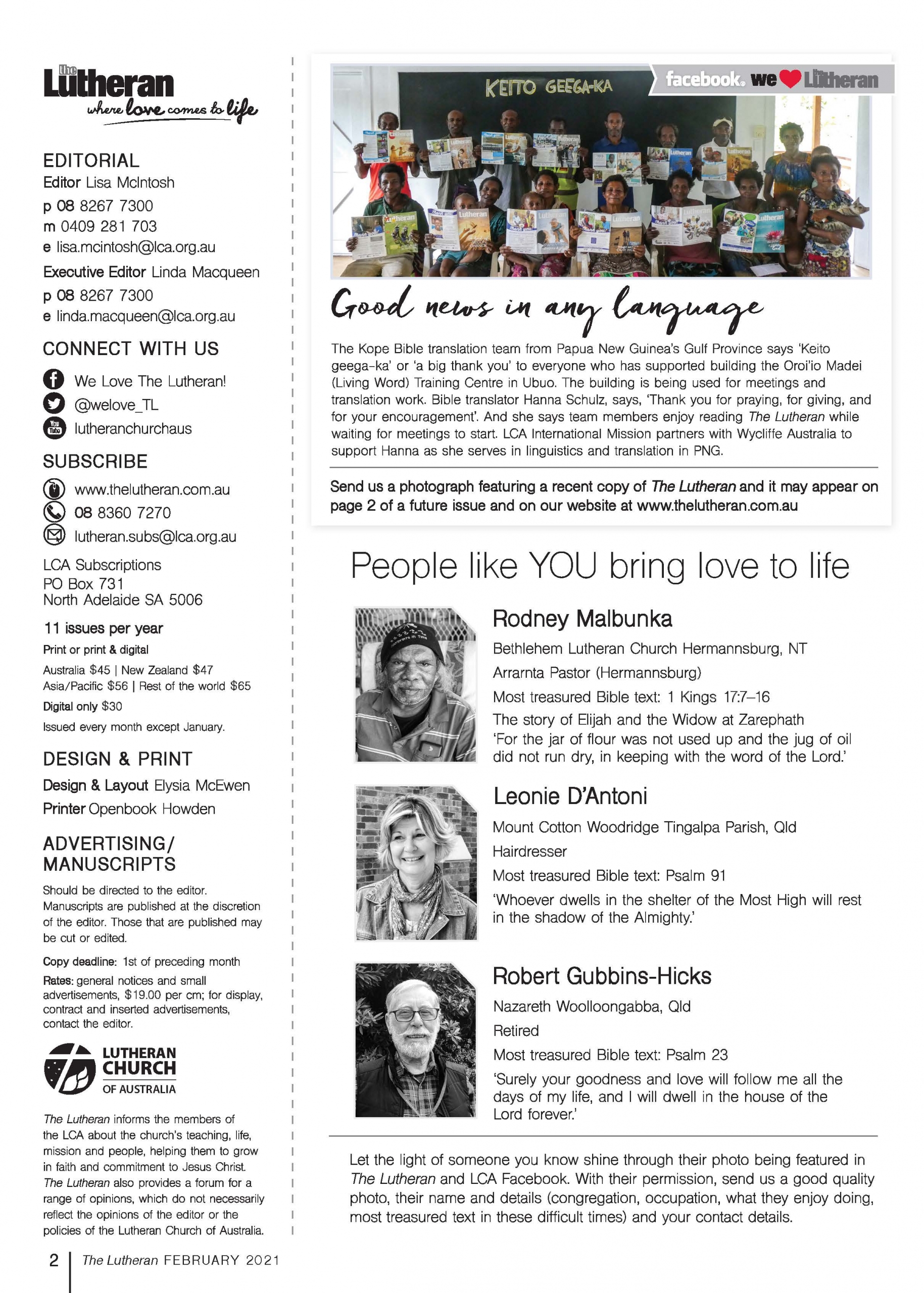by Matt Anker
In recent years I have witnessed the generosity of God’s people again and again. I’ve been blessed to see the LLL forgive a $75,000 loan to a congregation; humbled by a child sending the contents of her piggy bank to help build a much-needed church, along with an older couple donating more than $1 million to the same cause.
I’ve been astonished to see churches built in Africa with money that was donated with joy and seen the long-term blessings of gifts that fund theological education in Papua New Guinea and across South-East Asia. This all reminds me of a very generous widow in Luke’s gospel.
Read Luke 21:1-4.
What is your response to such generosity?
While I’m certain we would all give thanks to God for the generosity of his saints, how does this make you feel deep down? As you search your heart is there any sense of guilt or shame that you haven’t acted similarly? Or does it encourage a sense of pride in how generous you have been? Do you despair because you feel unable to respond with such generosity due to life’s circumstances?
Talk of giving inevitably raises all these reactions and more. So I want to say that your sins of pride, of stinginess toward the Lord, of trusting in yourself and not in the Lord, and of begrudgingly trying to please God through your giving – all these sins are forgiven and you are free because God did not hold back his only Son, but generously gave him up for us all.
I proclaim this good news to you because it is intimately connected with faithful giving, and unless you receive the forgiveness Christ won for you, it is impossible to give in a way that pleases the Lord.
Read Philippians 4:14–19.
What motivated the Philippians to support Paul and his ministry? (Chapter 1 gives you more insights.)
Paul is also acutely aware of their physical needs – how does he encourage them to continue in their generosity even in the face of such realities (v19)? How did God use their gifts to multiply the blessing they received?
Read 2 Corinthians 9:6–15.
What keywords does Paul use to describe Christian giving – both what it is and what it is not?
What makes a Christian giver cheerful?
According to verse 10, who is the ultimate owner of things we give?
We are but stewards of God’s resources, tasked with the responsibility of managing what we have to bring glory to God and his mercy to our neighbour. As we give, God blesses us by drawing us deeper into his mission to forgive and save.
Giving also helps us prioritise what is truly important and discourages us from laying up treasures on earth (See Matthew 6:19–20).
The impressive thing about the gifts I mentioned at the beginning is not their magnitude, but rather that they were given so that others could receive God’s grace through the ministry of the gospel. The gifts were inspired by the act of a generous God who did not hold back his own Son but willingly gave him up that we might have life in his name.
How are your gifts blessing others, so that they may know the hope to which you have been called?
The answer may be apparent to you, or perhaps not seen this side of eternity. But be encouraged that your giving, in response to Jesus’ gift to you, is being used by him for a work that will last for all eternity.
Pastor Matt Anker serves as Assistant to the Bishop – LCA International Mission.




